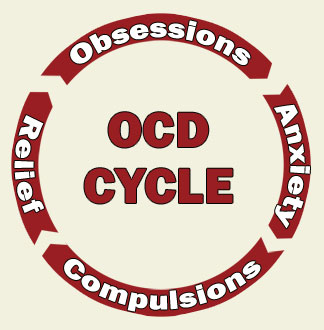
Anxiety and stress can be pervasive and wear on ones emotions as well as your body. Anxiety can manifest itself in a variety of manners, many of which are somatic, meaning in the body. It creates a chain reaction with symptoms of stomach pain, shakes, sweat, sleep difficulty, and fatigue.
Most often anxiety can effectively be treated with counseling and therapy and in certain cases medication. I’ve included some thoughts below for assistance your managing and reconsidering dealing with stress and anxiety.
You are what you eat. Eating a well balanced diet can help curb and manage ones ability to concentrate, regulate emotion, and otherwise calm your nerves.
Regular exercise. It’s been found that energy levels and one’s ability to activate and restore emotional stability is enhanced and often strengthened when regular exercise is a part of your daily routine.
Taking care of You. Taking time for yourself, what I call Self Care, can help you feel balanced and centered. Working to balance your work, rest, and self care will help immensely in keeping stress at bay. Self care is whatever you make of it. Reading a good book, having a relaxing bath, watching a movie, snatching your favorite candy bar at the grocery store, etc.
Mind Rest; sleep, sleep, sleep. Understanding your body’s rhythm is key to keeping your emotions in check and staying calm. Rapid eye movement (REM) cannot occur unless you rest deep and rest well. Get adequate sleep for better ability to stabilize emotions and your day. Read more on my blog article about sleep and emotional regulation.
Deep breathing. Relaxation meditation and breathe work is very helpful for moving your mind into a calm state that can help with decision making and clarity of mind. See my blog article on mindfulness and stress/anxiety relief.
Avoid substance use. Covering or managing your ‘nerves’ with alcohol or drugs only serves to soothe and creates dependency. Do not attempt to “calm your nerves” by drinking alcohol or using drugs. Doing so tends to create other relational problems and foster potential addictions.
Avoid caffeinated beverages. Excessive use of coffee, tea, soda, etc. has been shown to cause or trigger anxiety in research studies.
Copyright: No part of this article in section or full may be reproduced without permission from the author Justin Stum, MS LMFT. The one and only exception is for educational purposes and only if the contact information below for the author is fully cited here in article. Justin Stum, MS LMFT, 640 E. 700 S., Suite 103, St. George Utah 84770, 435-574-9193 https://www.justinstum.com







